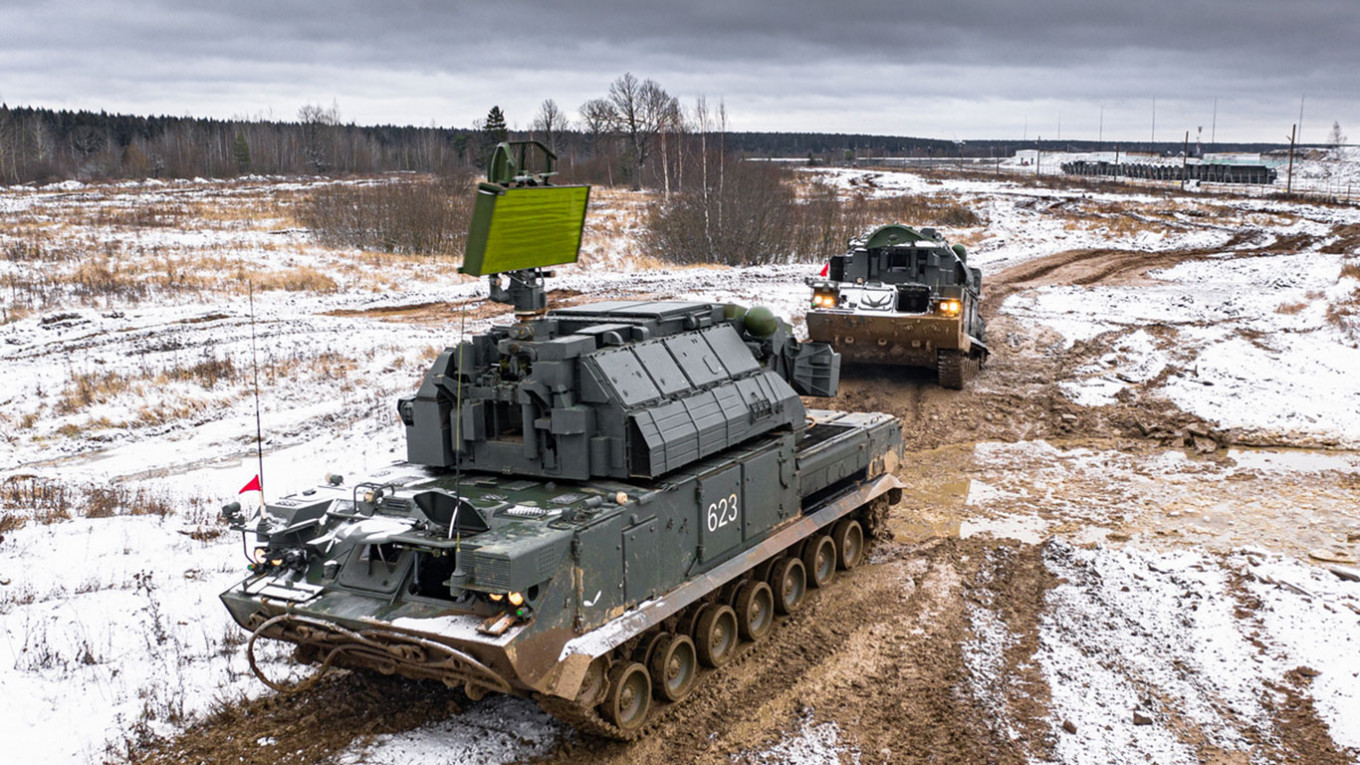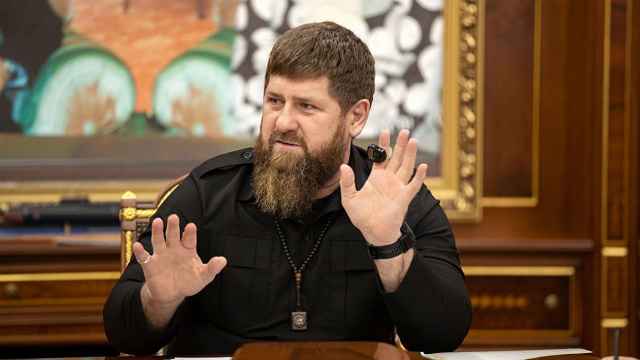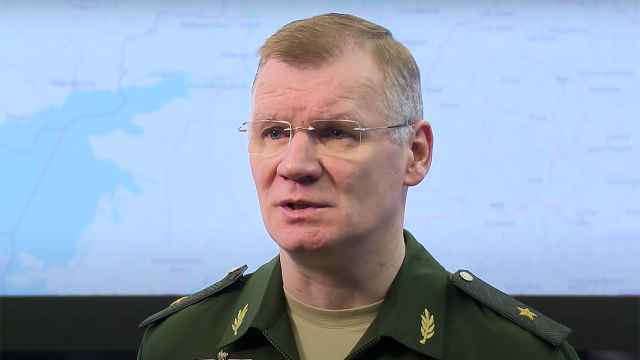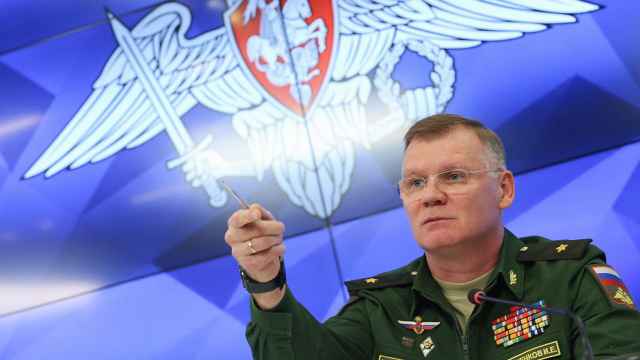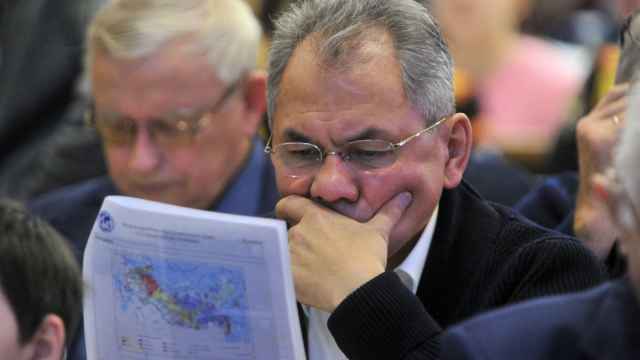The Russian military announced live fire exercises near Ukraine on Tuesday as fears of an invasion of its western neighbor remained high amid ongoing diplomatic efforts to calm tensions.
The Defense Ministry said 3,000 troops and 300 tanks and infantry fighting vehicles have been deployed across three western Russian regions bordering Ukraine and one bordering Belarus.
The military’s Western Military District said the motorized rifle drills will involve T-72B3 main battle tanks and BMP-2 infantry fighting vehicles.
The drills stretch across western Russia’s Voronezh, Belgorod, Bryansk and Smolensk regions.
Late in December, Russia completed 10,000-troop drills across southern regions that included Crimea, which it seized from Ukraine in 2014.
Russia’s announcement Tuesday — marking its second live fire exercises near Ukrainian borders in a month — came one day after Russian and U.S. diplomats held strategic security talks to try to de-escalate tensions.
One of the key de-escalation issues offered by Washington was mutually limiting military exercises and deploying missiles in Europe. The U.S. State Department on Tuesday said Russia’s exercises go “in exactly the opposite direction” of de-escalation.
The West has for months raised alarm over Russian military buildup near Ukraine and fears of a Russian invasion of its ally. Moscow denies planning an invasion and says moving troops and holding military drills within its borders is its right.
The U.S. State Department said Russia offered no proof it would not invade or any explanation for why it has deployed some 100,000 troops toward the Ukrainian border.
“These kind of deployments, 100,000 troops out of barracks and on the Ukrainian border, are extremely expensive,” Under Secretary of State Victoria Nuland said during Tuesday’s briefing. “As is the deployment of this kind of weaponry in the cold winter.”
The Ukrainian president’s spokesman welcomed "the intent and efforts of the United States and Russia, and NATO and Russia to reduce tensions and resolve all mutual issues at the negotiating table."
Monday’s negotiations in Geneva offered no breakthrough, with the next round of dialogue moving to NATO headquarters in Brussels on Wednesday.
AFP contributed reporting.
A Message from The Moscow Times:
Dear readers,
We are facing unprecedented challenges. Russia's Prosecutor General's Office has designated The Moscow Times as an "undesirable" organization, criminalizing our work and putting our staff at risk of prosecution. This follows our earlier unjust labeling as a "foreign agent."
These actions are direct attempts to silence independent journalism in Russia. The authorities claim our work "discredits the decisions of the Russian leadership." We see things differently: we strive to provide accurate, unbiased reporting on Russia.
We, the journalists of The Moscow Times, refuse to be silenced. But to continue our work, we need your help.
Your support, no matter how small, makes a world of difference. If you can, please support us monthly starting from just $2. It's quick to set up, and every contribution makes a significant impact.
By supporting The Moscow Times, you're defending open, independent journalism in the face of repression. Thank you for standing with us.
Remind me later.


